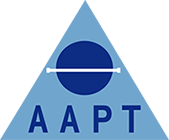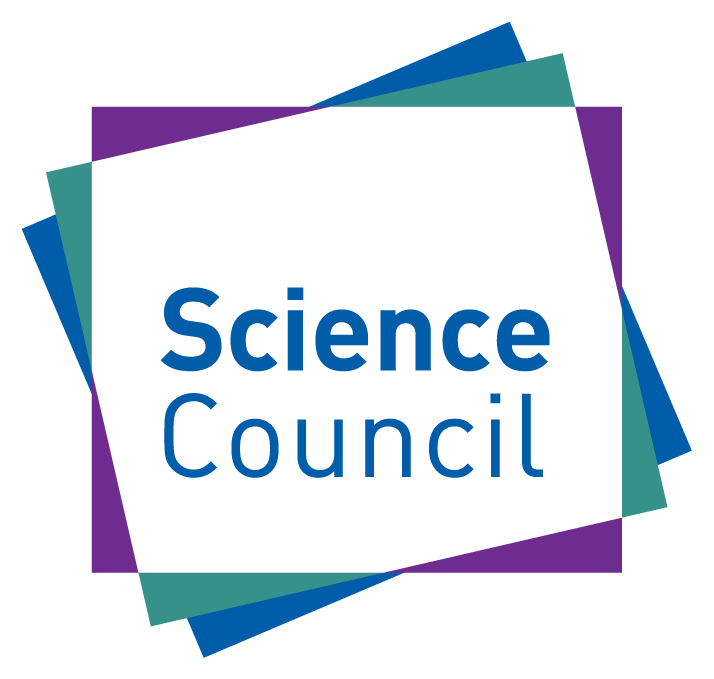Science Council Registration
Introduction
The Science Council provides the quality assurance system for those working in science. The Science Council set the standards for professional registration for practising scientists and science technicians across all scientific disciplines.
Through Licensed Bodies, the Science Council admit to their registers scientists and science technicians who meet competence and conduct requirements and commit to Continuing Professional Development.
The AAPT provides guidance as to how an Anatomical Pathology Technologist (APT) can apply, and be maintained, as a Science Council registrant.
The guidance is informative across three award levels: Registered Science Technician (RSciTech), Registered Scientist (RSci) and Chartered Scientist (CSci), and contains examples as to how an APT might demonstrate each standard.
There are three ways in which an APT can make a Science Council application:
Shortened Application route for those who hold the RSPH Level 3 in Healthcare Science (Anatomical Pathology Technology)
If you hold the RSPH Level 3 Diploma in Healthcare Science (Anatomical Pathology Technology) onwards you are eligible for a shortened application route for RSciTech but you must apply within two years of attaining the qualification (i.e. if you attain the Level 3 on 1st December 2022, you must apply by 1st December 2024).
Via the Science Council online application route
Applications for professional registration for those who hold the RSPH Level 3 Diploma in Healthcare Science (Anatomical Pathology Technology) prior to 2022 or the RSPH Certificate in APT or RSPH Diploma in APT should be made via the Science Council On-Line Application Process
Via the Science Council online application route (mortuary technician apprenticeship graduates)
Have you completed the apprenticeship ‘Mortuary Technician – Anatomical Pathology Technologist’ in the last 2 years?
If yes, you can now apply for professional registration as a ‘Registered Science Technician – RSciTech’ using a shortened application route.
Should you have any questions regarding the process please contact the AAPT Secretary Christian Burt via mail@aaptuk.org or you can contact the Science Council direct
Tip! Ensure to read the Common Application Process Manual for Applicants before starting the application. A digital mini-booklet is also a useful first resource as to the benefits of professional registration
About professional registration with the Science Council
The AAPT hold a Full Licence with the Science Council to offer the RSciTech, RSci and CSci professional registration awards.
Registration with the Science Council enables those eligible AAPT members to publicly demonstrate their commitment to professional standards, the APT profession and to use the designatory letters after their name – RSciTech, RSci or CSci.
AAPT believes that professional registration delivers parity and consistency across the UK scientific and technical workforce and an overview of professional registration benefits can be found on the Science Council website and below:
Be publicly recognised for your professional excellence
Registration recognises your knowledge and experience alongside any qualifications you may have. This captures on-the-job experience and shows the level of competence you have as a practising scientist. It also demonstrates your commitment to integrity, regard for public interest and responsibility for others.
Increase your confidence and skill
Applying for professional registration supports and encourages you to reflect on what you have achieved in your career so far. It’s a process that will build your confidence as a practising scientist.
Demonstrate your ethical credentials
Registration tells others that you are committed to working to high ethical standards and gives them trust and confidence in you as a professional scientist.
By becoming registered, professional scientists agree to be bound by the Science Council’s Model Rules of Conduct for Registrants as well as the code of professional conduct of your Licensed Professional Membership Body.
Improve your chances of promotion
Registration is a mark of quality and competence that is sought after by employers. It commits you to standards of integrity and professional development that help you stand out from the crowd.
Become a leader within your field
Being professionally registered is a mark of excellence. And each of the Science Council’s registers reflects stages in your career as a scientist, encouraging you to work towards and eventually achieve the standards of professionalism of a Chartered Scientist.
Join a worldwide community of cross-disciplinary scientists
Our scientists are spread across many different countries, but they all share a commitment to professional excellence. When you become registered, you also join this community of other registered professional scientists.
Eligibility
Minimum Eligibility for making a Registered Science Technician (RSciTech) application
- Are at the class of Member of the AAPT
- Hold the RSPH Level 3 Diploma in Healthcare Science (Anatomical Pathology Technology) or equivalent
- Expected to have one year's professional experience in a mortuary as an APT
- Committed to undertaking continuing professional development (CPD)
- Have a supporter/proposer for your application
Minimum Eligibility for making a Registered Scientist (RSci) application
- Are at the class of Member or Fellow of the AAPT
- Hold a Level 5 qualification or equivalent
- Expected to have two years professional experience in a mortuary as an APT
- Committed to undertaking continuing professional development (CPD)
- Have a supporter/proposer for your application
Minimum Eligibility for making a Chartered Scientist (CSci) application
- Are at the class of Fellow of the AAPT
- Hold a Level 7 qualification or equivalent (equivalence guidance)
- Expected to have five years professional experience in a mortuary as an APT and at Mortuary Manager level
- Committed to undertaking continuing professional development (CPD)
- Have a supporter/proposer for your application
Continuing Professional Development (CPD)
The AAPT will monitor the CPD of registrants annually and you may be selected and required to present your CPD record, including reflection and future plans.
The AAPT online CPD portfolio (Members Area) is a useful tool to record your CPD activity in line with Science Council requirements.
The AAPT hold CPD Focus evening webinars and a useful "How To" Guide on Reflection will also help you undertake CPD. More information is on the Science Council website CPD advice and support section.
Registrants must comply with the Science Council CPD Standards for Registrants which state:
- A registrant must maintain a continuous, up-to-date, accurate and reflective record of their CPD activities and be able to provide supporting evidence if requested.
- A registrant must demonstrate that their CPD activities are a mixture of learning activities relevant to current or future practice.
- A registrant must seek to ensure that their CPD has benefited the quality of their practice and reflect upon this.
- A registrant must seek to ensure that their CPD has benefited the users of their work (employee, customer, student etc.) and reflect upon this.
Learning activities
Registrants’ CPD should be a mixture of learning activities relevant to current or future practice and should include activities in at least three (exceptionally two) of the following categories:
- Work based learning (e.g. supervising staff / students, reflective practice)
- Professional activity (e.g. involvement in a professional body, mentoring)
- Formal / Educational (e.g. undertaking a qualification, attending external course, online courses, attending conferences
- Self-directed learning (e.g. reading journals, reviewing books / articles)
- Other (volunteering etc)
Apply for Professional Registration as an apprentice
The Science Council and its’ member organisations have created a shortened application route to becoming professionally registered for apprentices, depending on the apprenticeship which has been undertaken. The Science Council also provide a useful manual for shortened applications and a self-directed application support link on padlet
This includes the Mortuary Technician (Anatomical Pathology Technologist) Level 3 ST0889 Version 1.0 – Fully aligned to RSciTech – Enrolments from 30/03/22 to present
Competence report guidance
Applicants will need to demonstrate competence across five areas. Guidance on what the assessors will be looking for under each competence is provided below but the examples are just indicative – there will be many other valid examples you can choose. You'll also find Supporter Guidance documents and other useful Do's and Dont's tips:
Competence Report examples for RSciTech, RSci and CSci
Registered Science Technician Guidance
Registered Science Technician Supporter Guidance
Registered Scientist Supporter Guidance
Chartered Scientist Supporter Guidance
Face to Face assessment options
Useful Broad Do's and Don'ts advice!
Science Council Professional Matrix
Here are some tips you should bear in mind when compiling your application:
- When you are thinking about how to structure your answers, you will need to think of examples of your experiences in terms of what you did, how you went about it and why you did it
- You should think about using examples that are fairly recent i.e. from the last three years, although you can also draw on relevant experience from further back in your career
- You can use and refer to a particular example more than once, but do ensure you make it clear how and why it applies to a competence
- You can use examples from broad professional experiences, but you must be able to show how you have applied the skills developed in your job role
- We expect that in a typical application 200-300 words will be sufficient for each competence, although the level of detail required could be less if you are to be interviewed
Code of Conduct
Registrants will agree to be bound by the code of professional conduct of their Licensed Body as well as by the Science Council Model Rules of Conduct for Registrants which state that:
Registrants must:
- Exercise their professional skills and judgement to the best of their ability and discharge their professional responsibilities with integrity, serving as an example to others
- Have regard at all times to the public interest
- Do all in their power to ensure that their professional activities do not put the health and safety of others at risk
- When called upon to give a professional opinion, do so with objectivity and reliability
- Never engage in corrupt practice
- Undertake appropriate Continuing Professional Development (CPD) and be able to demonstrate this to others
- Further the interests of and maintain the dignity and welfare of their Licensed Body and profession.
The Assessment Process
Applications for the awards must be made via the Science Council On-Line Application Process
Completed applications are assigned two assessors by the Science Council. Following assessment the AAPT will be sent the full application outcome for a final decision. If approved, a certificate showing your registration as a Science Council registered professional will be sent with a formal letter by the AAPT.
Appeals
Should the AAPT feel that at this time, that unfortunately you do not meet the criteria you will be advised. If you wish to appeal this decision and have your application reconsidered, you must notify the AAPT Secretary in writing within a month of receiving the correspondence from us.
Appeals letters should state how you meet the standards and include evidence additional to your original submission, and be signed by both the original proposer and yourself.
All such appeals will be considered by the AAPT Executive Committee, whose decision is final.
Costs
The Science Council levies a fee for each member on the register. In addition to the AAPT membership subscription fee an annual payment of £46 for Chartered Scientist registration, £20.50 for Registered Scientist and £15.50 for Registered Science Technician will be payable.


